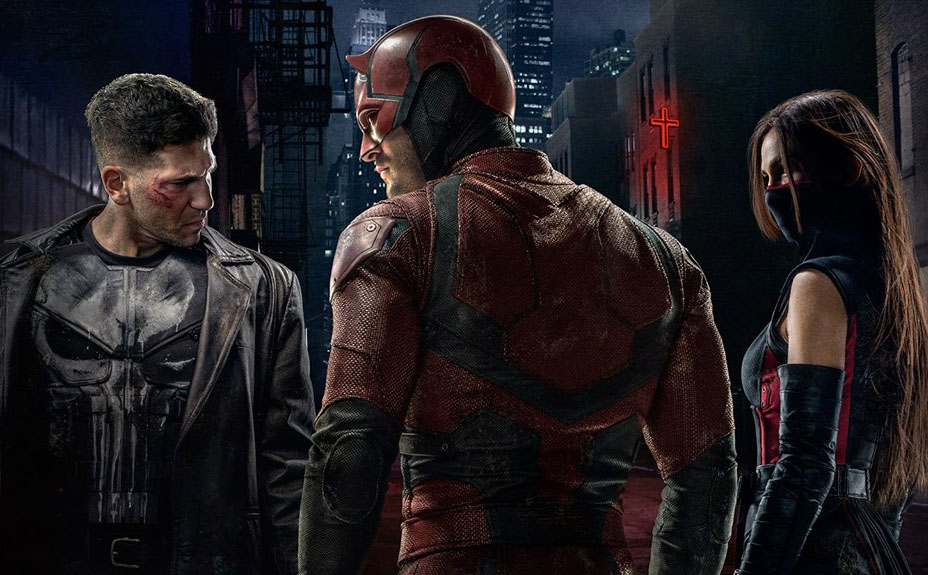Unlike the steady flow of superhero sewer sludge pouring out of Hollywood, Netflix Originals seem to have discovered a way to do comic book narratives justice without resorting to massive sky battles or the endless mashing of CG robots.
Marvel’s Daredevil Season 1 and Jessica Jones benefit from being episodic because they can progressively show character development, as opposed to cramming it into two hours and punctuating it with inconsequential explosions that leave easily impressed audiences with a satiated mess in their laps. And I’m not talking about Eastenders omnibus-type development, either. I’m talking messed up, psychological arcs that actually make you empathise with serial killers. That’s how effective these shows have been. But in Daredevil’s second outing, there’s enough misuse of characters and tonal imbalance to pluck it from its relative credibility and dip it deep into fantasy. I know; you’d think that was a given considering it’s a show about a blind man who fights ninjas in a gimp outfit.
There are no bad guys left in Hell’s Kitchen; Daredevil (Charlie Cox) kicked them all out. At least he thought he did. They’ve actually been acting like a broken game of whack-a-mole and are only just veering their heads now that they can’t see the mallet. While the Irish, a group of bikers and the Yakuza all vie for control of the city, a new threat emerges in the form of The Punisher (Jon Bernthal), who’s going around murdering anyone linked to the death of his family – which appears to be everyone. This kick-starts about four hours of moral battling between him and Daredevil. They have very different ideas of justice; the latter thinks you can punch criminals into prison and the former prefers to shoot them in the face. At this point, the show almost completely transforms into The Dark Knight as we watch the protagonist have an existential crisis. It’s rather annoying seeing him prat about on his high horse, incessantly flip-kicking like Bruce Lee on speed while his friends and loved ones get kidnapped or stabbed.
But the biggest act of criminality here is the underuse of The Punisher. Some of the best moments come from him hanging goons on meat hooks, blasting faces off with a shotgun and poking holes in people’s necks like he’s preparing a ready meal for the microwave. It’s not long, however, until he’s given a more subdued role to make way for the second half of the season, which tonally fits the first half like a foot fits a glove.
Where we formerly had a relatively believable crime thriller, we now have a plot involving poisonous ninjas, blood farming, resurrection and zombies. Yes, zombies. Well they’re more like demonically possessed hospital patients, but who the hell cares? If it weren’t for Elektra (Elodie Yung), the best thing about the season, I probably would have switched off, stared at a wall and waited for Game of Thrones to come out of hibernation. She does as much as she can to counteract a sombre and downright annoying Daredevil, but by this point, they’re talking about a mythical, underground organisation that believes in immortality and I’m contemplating leaving to make a cup of tea.
Elektra also gets to weigh in on the morality issue swathing the entire season. Like The Punisher, she’d rather kill the bad people so they can’t get up again. It’s an argument that ultimately leads to a lot of flawed logic – chances aren’t taken to kill and characters are saved for contradictory reasons. Speaking of flawed logic, a couple of episodes set primarily in prison do as much as they can to reverse the effects of the first season. If the police force isn’t going to uphold anything then Foggy and Karen’s law firm antics are about as pointless as a review without a proper ending.
